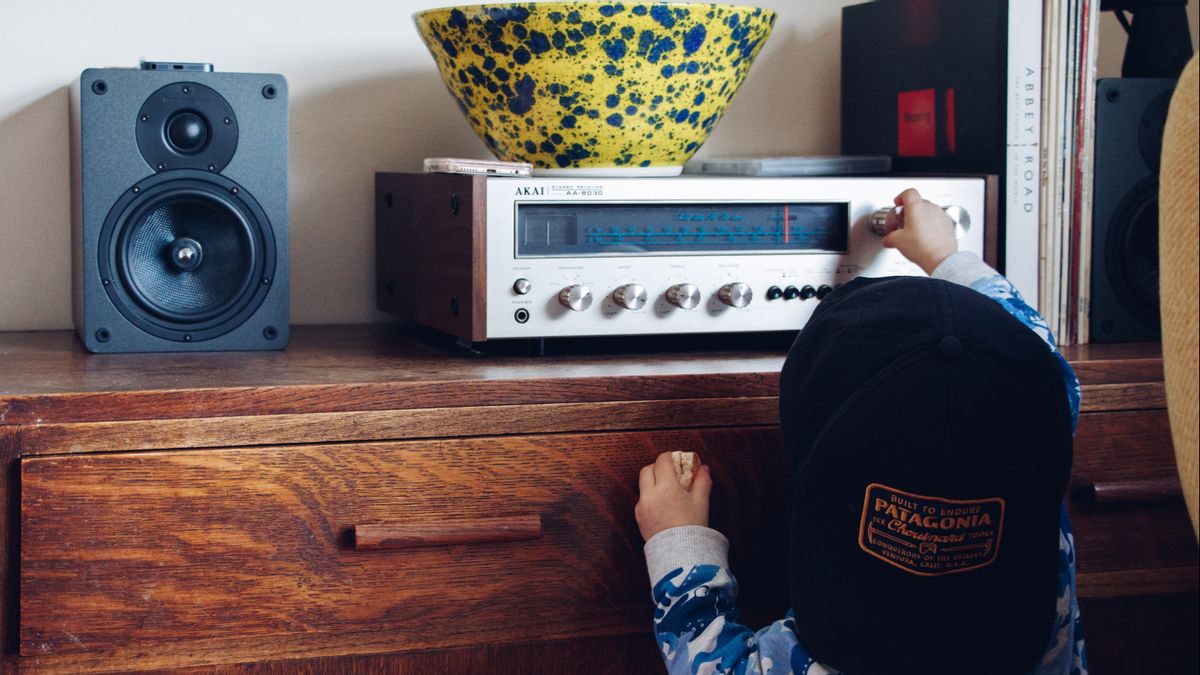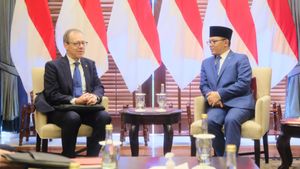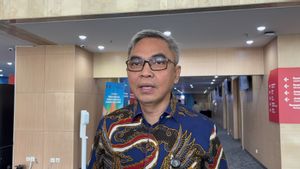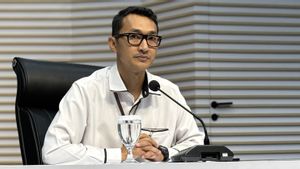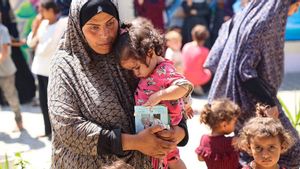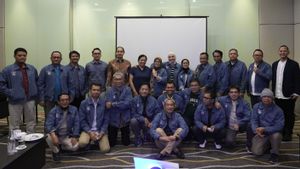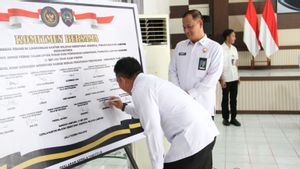JAKARTA - The Ministry of Education and Culture (Kemendikbud) has asked teachers to always innovate in the midst of the COVID-19 pandemic in carrying out teaching and learning activities. The goal, so that students do not get bored in participating in learning activities from home as recommended by the government.
Acting Director General of Early Childhood Education, Primary and Secondary Education of the Ministry of Education and Culture, Hamid Muhammad said that innovation by teachers is needed so that learning activities from home remain enjoyable.
"Do various learning innovations so that the children are not bored, heavy, and they enjoy learning at home," said Hamid in a press conference broadcast on the BNPB YouTube account, Saturday, May 2.
In addition, teachers and teaching staff must understand the conditions of their students. Especially regarding internet access. Because, the Ministry of Education and Culture noted that there were three major groups in this study.
First are those who are able to carry out online learning through pre-existing educational platforms such as ruangguru, learning houses and various other interactive platforms.
The second group were those who studied using a semi-online system. So it is not interactive because all tasks will be sent via short message applications, such as WhatsApp.
The third group are those who are unable to carry out teaching and learning activities online, because there are no facilities and infrastructure. So, if you have this learning activity, you still have to learn even though you have to manually.
"Children who do not have internet access, access to electricity, access of course learn manually, maybe in some places using community radio and others," said Hamid.
The request from the Ministry of Education and Culture so that teachers can look for innovations so that learning activities at home can remain effective and fun, has already been done.
Titis Kartikawati, an elementary school teacher in Sanggau Regency, West Kalimantan, said that the geographical conditions in the area where she teaches are very diverse. So it is impossible to rely solely on online learning considering that there are several locations that are blankspots or have no signal at all.
To anticipate this, he and the Teacher Learning Community finally used radio as a means of providing learning materials to their students.
"From Monday to Friday we take turns (radio broadcast). All teachers can provide material that they are good at, not necessarily according to the curriculum but according to the direction of the Minister of Education and Culture," said Titis.
This radio program, he said, could even be heard as far as the Entikong area, which is the border between Indonesia and Malaysia. So that students who are in the area and are usually constrained by signals can listen well to the material given.
Another advantage of studying through radio is that parents in the area do not need to increase their expenses because they have to buy internet quotas. Given that most of the students' parents only work as agricultural laborers, oil palm workers and vegetable traders.
"If you have to use the internet, it will be burdensome for the credit," he said.
Meanwhile, Titik Nur Istiqomah, an elementary school teacher in Muntilan District, Central Java, said that the internet is not a problem in the area where she teaches. It's just that the challenge arises because the teachers have to be creative to present fun learning activities at home.
"Educators are now being challenged to be creative in advancing education with existing technology so as not to become a burden," said Titik.
Recently, he said, he has used various applications to create fun learning activities. Including the TikTok application which is currently on the rise.
"We have used the TikTok application because children like to use the media and there is nothing wrong with using TikTok for learning media," he explained.
Innovation and creativity in utilizing various media as learning suggestions are needed. However, said Titik, this learning activity would still not be effective if there was no participation from parents. Moreover, during Distance Learning (PJJ) activities, parents of students know the best about their child's condition for 24 hours.
"In order not to become a burden, the first key is communication between teachers, parents and children. Education will be successful if there is a collaboration of the three," he concluded.
The English, Chinese, Japanese, Arabic, and French versions are automatically generated by the AI. So there may still be inaccuracies in translating, please always see Indonesian as our main language. (system supported by DigitalSiber.id)
